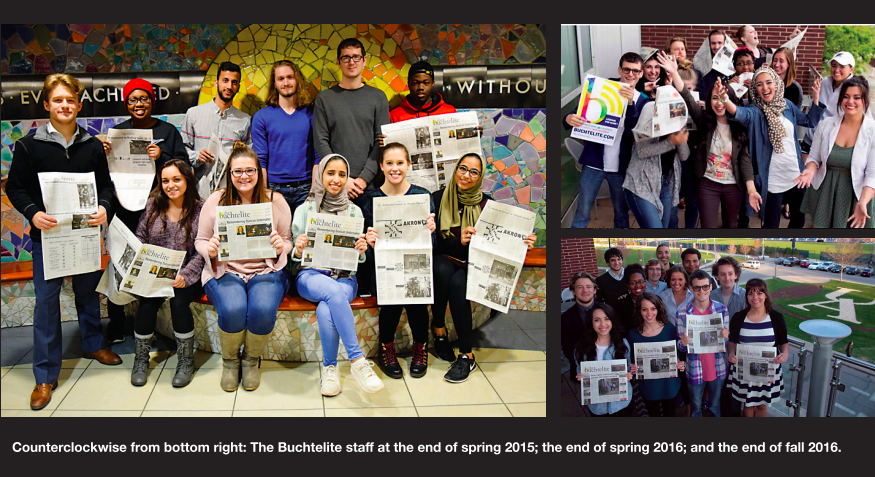“In the Jan. 24 issue of the the Buchtelite, I wrote a story about the high priced textbooks. One particular bookstore, took it as an attack, even though no store was singled out. Also, they were perturbed that I said every time a book was resold, they were gaining pure profit.”
“
In the Jan. 24 issue of the the Buchtelite, I wrote a story about the high priced textbooks. One particular bookstore, took it as an attack, even though no store was singled out. Also, they were perturbed that I said every time a book was resold, they were gaining pure profit.
Hence, I am clarifying myself. In the story I addressed the outrageous sums of money we all pay for books, pointing out that the formula for determining the price of a used book is a closely guarded secret.
I wrote, The inventory has already been paid for when the bookstore bought the book new, so each time that the book is resold past the first time, it’s pure profit.
That statement isn’t entirely accurate. Most retailers make money in a similar way: buy a product from a manufacturer (publisher in this case), determine an appropriate level of markup and sell the product at a price that, hopefully, covers not only the product’s original cost but also some amount of operating expenses that the retailer has. When all inventory costs and operating expenses are covered, profit is made. Generally speaking, of course.
Now, just because the original cost of the book has already been covered when the bookstore sold the book new, it doesn’t mean that each subsequent sale of the book goes directly to the bottom line. When the bookstore buys our books back at the end of the semester, it is essentially buying more inventory. These are product costs that must be covered when it is resold, so the profit is not as great as my statement would have had you believe.
The resale of used books doesn’t result in pure profit.
After all, nothing that enrages, saddens and demoralizes students like the amounts we spend on books could possibly be pure.
The question still remains; how much profit is being made on the sale of these books? It’s a question we’re not likely to find an answer to, seeing as how none of the bookstores are required to make same-store financial data available to the public. It would have to be given willingly, though I doubt one store would step up to the plate if none of the others did.
In order to determine for ourselves if we’re paying a reasonable price for books, we would need hard, accurate and verifiable data from the bookstores. Specifically, I’d like to know what their profit as a percentage of net sales is, which would really give some insight about the nature of their pricing. Ideally, we would know exactly how they decide how much to charge for a book.
It’s a lot to ask for, so I’m not expecting much. We will continue to pay exorbitant prices for books and get a meager portion of that back at the end of the semester. And so long as no one is willing to give us the information we need concerning book pricing methods, we will continue to believe that it’s unfair and draw our own conclusions.
“



